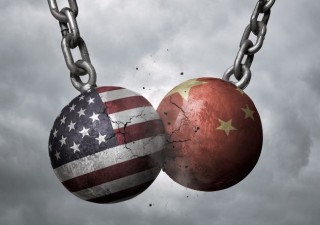IP Protection in Vietnam: Government Tightens Enforcement Against Counterfeiting
11 June 2013

In Vietnam, the regulatory system to protect intellectual property rights was first put in place in 2005 through the Law on Intellectual Property. However, over the years, inherent deficiencies and administrative loopholes have severely undermined the efficacy of the system and made it difficult for the owners of IP rights and the authorities alike to take action against infringers.
In January 2013, the Vietnamese Government issued a Decree (No: 08/2013/ND-CP) (the Decree) to further cut down on red tape and make it easier to initiate action against counterfeiters. This Decree is in addition to the previous Decree No: 97/2010, which applies to administrative violations in IP. The issuance of these Decrees, together with other steps taken by the Vietnamese Government to curb IP violations, is a clear indicator of the Government’s intention to improve the robustness of IP rights in Vietnam.
Applicable to Vietnamese as well as foreigners, corporate and ordinary, and to all authorized licensees, the Decree deals with the acts of administrative violations, the forms and rates of penalties, the remedial measures for administrative violations, as well as the procedures and authority to impose administrative penalties for acts of producing and trading in counterfeit goods.
The main focus of the Decree is to stop the production and trading of counterfeit goods; as well, the Decree aims to protect consumers from counterfeit goods and secure IP rights for genuine owners. Each act of counterfeiting is subject to either of the two principal sanctions – warning or fine. Depending upon the nature and severity of violations, counterfeiters may also be subject to additional sanctions such as confiscation of material evidence including goods bearing counterfeit marks or geographical indications, raw materials and all items used in the commission of the violation such as labels, packages, machinery, etc.
There has been a paradigm shift in the way penalties will be handed out to counterfeiters. A detailed bracket has been introduced, proportionate not only to the value of the fake goods, but more importantly, based on the nature and seriousness of the offence committed. This will go a long way to ensuring that actions initiated against producers of counterfeit products, actually become worthwhile. Further, to avoid Vietnam being used as a base for in-transit counterfeit goods, there are also provisions for forcible expulsion and re-export of infringing goods from Vietnamese territory.
One of the most important aspects of the Decree is that it recognizes counterfeiting of certain essential products, namely, foods, medicines, fertilizers, food additives, breeds of plants and animals, animal feed, veterinary medicines, pesticides, cosmetics, medical equipment, cement, building steel and helmets, as a very serious offence for which the penalty can extend up to D70,000,000 (around US$3,500). Additional forms of penalties include confiscation of the exhibits and instruments for committing violations and temporary or indefinite revocation of the practice certificate or license of entities engaged in counterfeiting activities.
The Decree also provides sanctions, remedies and punishments for violations and the wrongful indication of IP protection on goods. The officials competent to impose administrative penalties shall on mass media, announce the names and addresses of the counterfeiters, the kinds of counterfeit goods, tips on identifying fake goods, the location where counterfeit goods were found, etc. Furthermore, there is now greater clarity regarding the roles of various government agencies. For example, the Vietnamese Police will handle cases involving production and trade of counterfeit goods, the Border and Coast Guard would handle export, import and trade of counterfeit goods across the border, while the specialized inspection agencies will focus on taking actions against local production and trade of counterfeit goods.
Another important feature of the Decree is that it provides a framework for the valuation of counterfeit products and the instruments or machinery used for committing the violating act. The valuation figure is also used for estimating the penalty or fine to be imposed upon the offending party. Generally, the market price of the genuine goods or of goods having similar technical features is considered as the valuation price of fake goods. If the valuation is not feasible on the basis of market prices, a valuation council would be organized to assist in the process.
The Decree has given more teeth to the existing IP law, and is sure to be welcomed wholeheartedly by owners of IP rights in Vietnam.







